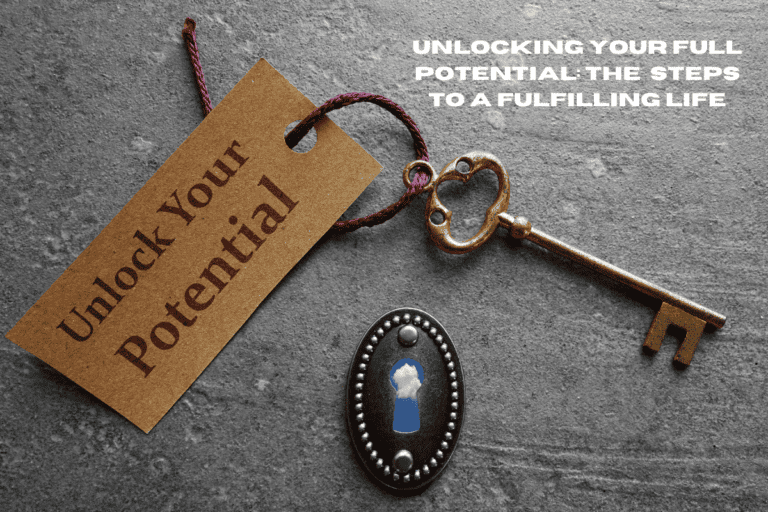Embrace Anxiety: Key to Personal Growth
Embrace anxiety as a catalyst for personal growth. Acknowledge anxiety's impact on your development. Use mindfulness to notice anxious thoughts and challenge negative patterns. Respond to anxiety in healthier ways to reveal resilience. Reflect on how anxiety affects your relationships; set boundaries and communicate openly. Avoidance hinders growth, so confront anxiety triggers for well-being. Break misconceptions; lasting happiness isn't just eliminating anxiety. Custom strategies, mindfulness, and exposure therapy help overcome anxiety with patience and support. Embracing discomfort is key for progress. Your journey to growth and transformation awaits with anxiety as your guide.
Key Takeaways
- Acknowledge anxiety's impact on growth to address and overcome limitations.
- Use mindfulness to observe anxious thoughts and cognitive restructuring to challenge negativity.
- Manage relationships effectively by setting boundaries and communicating openly about anxiety.
- Avoidance hinders growth; confront triggers with exposure therapy and personalized strategies.
- Embrace discomfort, practice self-compassion, and seek support to overcome anxiety for personal growth.
Impact of Anxiety on Personal Growth
To truly grow and evolve as an individual, it's essential to acknowledge and confront the impact anxiety can have on personal development. Anxiety has the potential to hinder your progress and limit your experiences.
Engaging in mindfulness practice can help you become more aware of your anxious thoughts and feelings, allowing you to respond to them in a healthier way. Cognitive restructuring is another powerful tool that can assist you in challenging and reframing negative thought patterns that contribute to anxiety.
Relationship Dynamics With Anxiety
Confronting the impact anxiety has on your relationships can lead to a deeper understanding of how it influences your interactions and personal growth. Managing boundaries is essential in maneuvering relationships with anxiety. Setting clear limits on what you can handle and communicating them effectively to others can help create a supportive environment.
Effective communication plays a pivotal role in fostering healthy relationships amidst anxiety. Expressing your needs, fears, and emotions openly can strengthen connections and build trust. By addressing anxiety within your relationships, you can learn to navigate challenges together and grow individually.
Embracing vulnerability and seeking understanding from those close to you can lead to meaningful progress in your personal development journey.
Consequences of Avoidance Behaviors
Avoiding anxiety triggers can greatly impact your overall well-being and hinder your personal growth journey. When you engage in avoidance behaviors, you may experience a decline in opportunities and a worsening of your anxiety symptoms.
Common avoidance strategies such as reassurance-seeking and constant worrying can restrict your ability to grow and succeed. Over-relying on avoidance mechanisms not only limits your chances for personal development but also exacerbates your anxiety levels.
Debunking Misconceptions About Anxiety
One common misconception about anxiety is the belief that eliminating it will automatically lead to lasting happiness. However, understanding avoidance and its role in anxiety management is vital for personal growth. Escaping anxiety through avoidance behaviors can be detrimental in the long run.
It's not anxiety itself that's the root cause of unhappiness, but rather the coping mechanisms employed. Embracing discomfort and uncertainty, instead of avoiding them, is essential for progress. Examples of avoidance behaviors include seeking constant reassurance or avoiding challenging situations.
Strategies for Overcoming Anxiety
To effectively overcome anxiety, it's important to develop personalized strategies tailored to your specific triggers and coping mechanisms. Incorporating mindfulness techniques can help you become more aware of your thoughts and feelings, allowing you to manage anxiety more effectively. By practicing mindfulness, you can learn to observe your anxious thoughts without judgment, ultimately reducing their impact on your well-being.
Additionally, exposure therapy can be a beneficial strategy for gradually confronting your fears in a controlled environment, helping you desensitize to anxiety-provoking situations over time. Remember, overcoming anxiety is a journey that requires patience and self-compassion. By actively engaging with these strategies and seeking support when needed, you can empower yourself to navigate anxiety and foster personal growth.
Conclusion
You've learned that embracing anxiety can lead to personal growth and transformation. Did you know that 40 million adults in the US are affected by anxiety disorders every year?
By facing your anxious feelings head-on, you can discover resilience, effective coping strategies, and support to navigate anxiety with courage and grace. It's time to shift your perspective and see anxiety as a catalyst for growth.
Embrace the journey towards a more fulfilling and joyful life.







